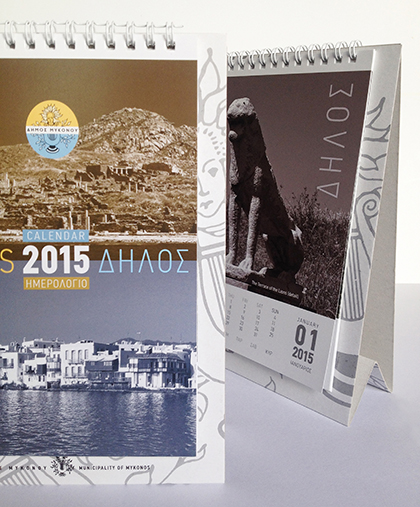
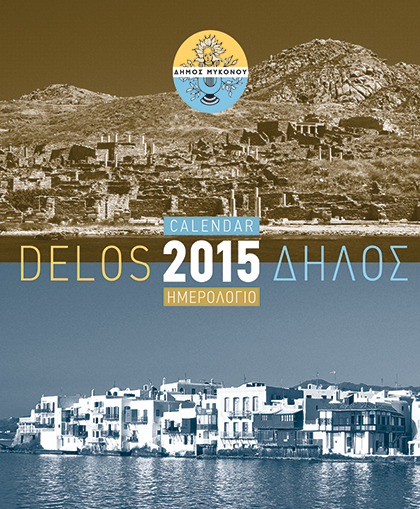
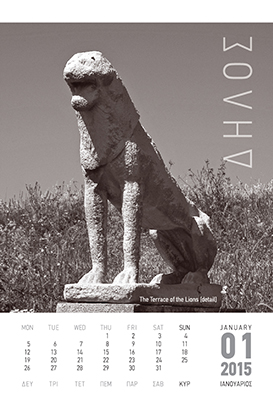
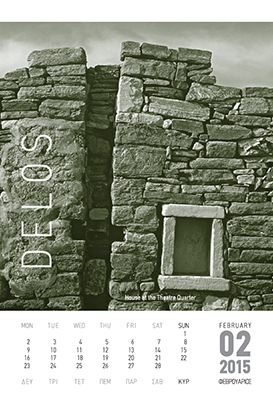
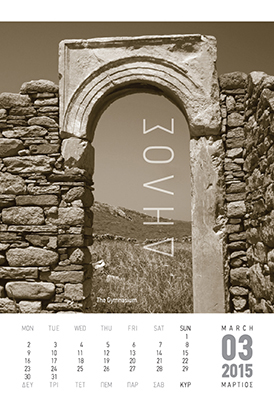
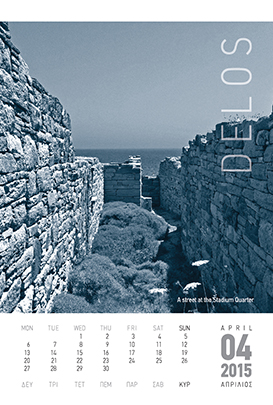
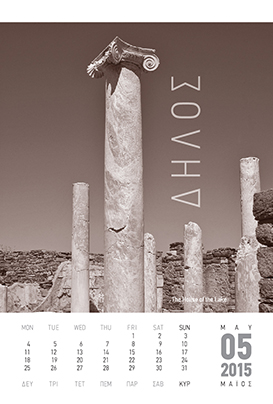
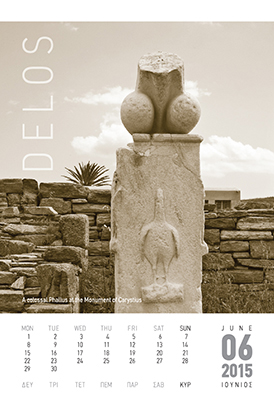
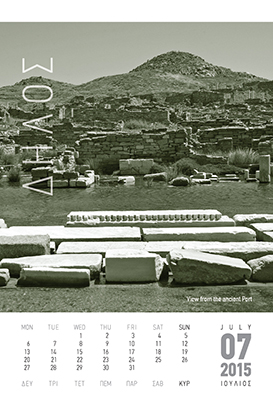
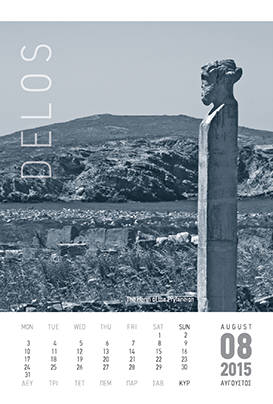
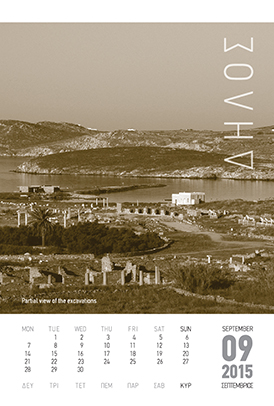
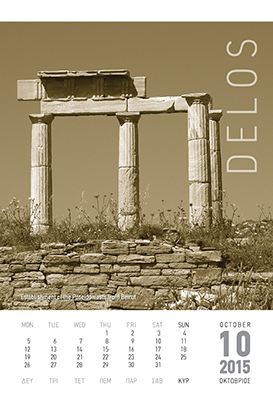
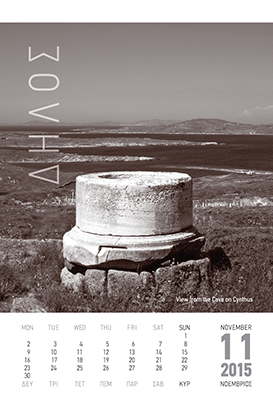
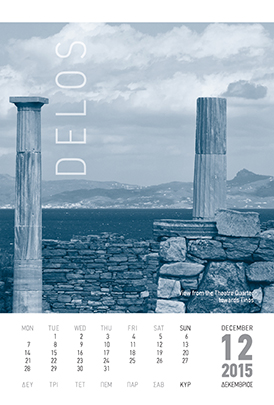
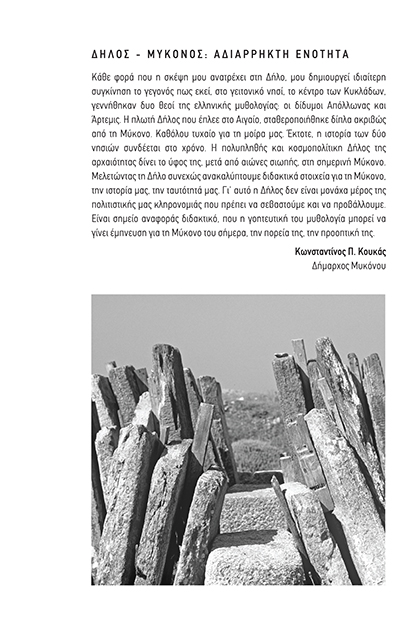
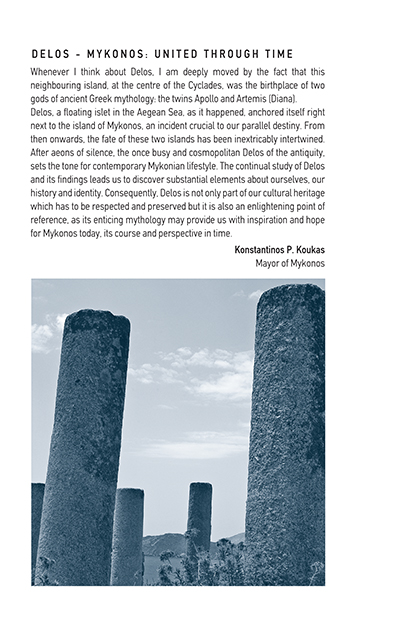
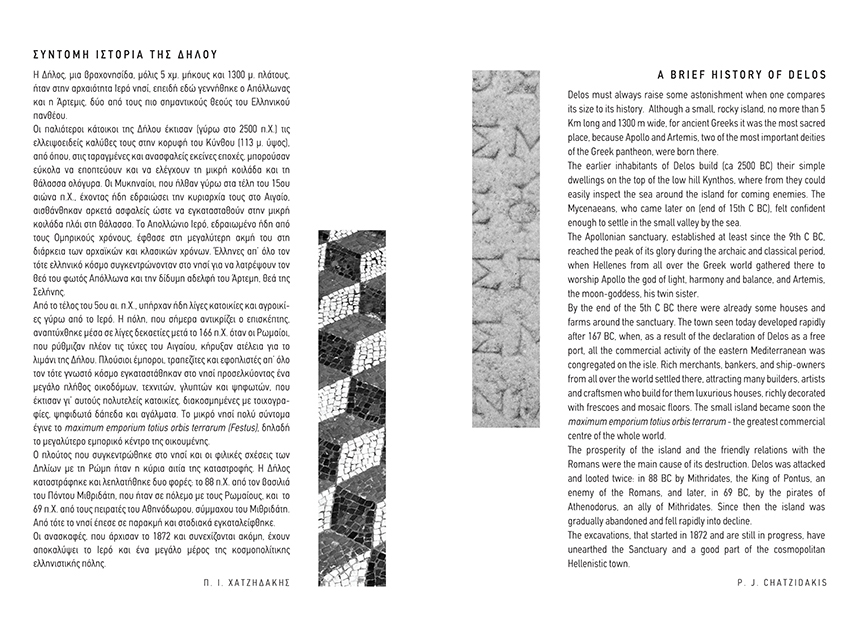
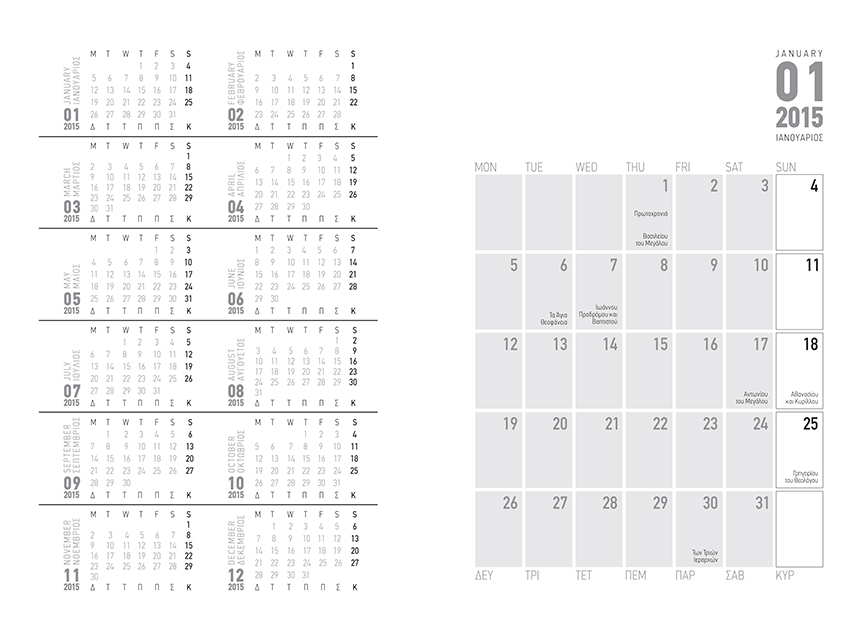
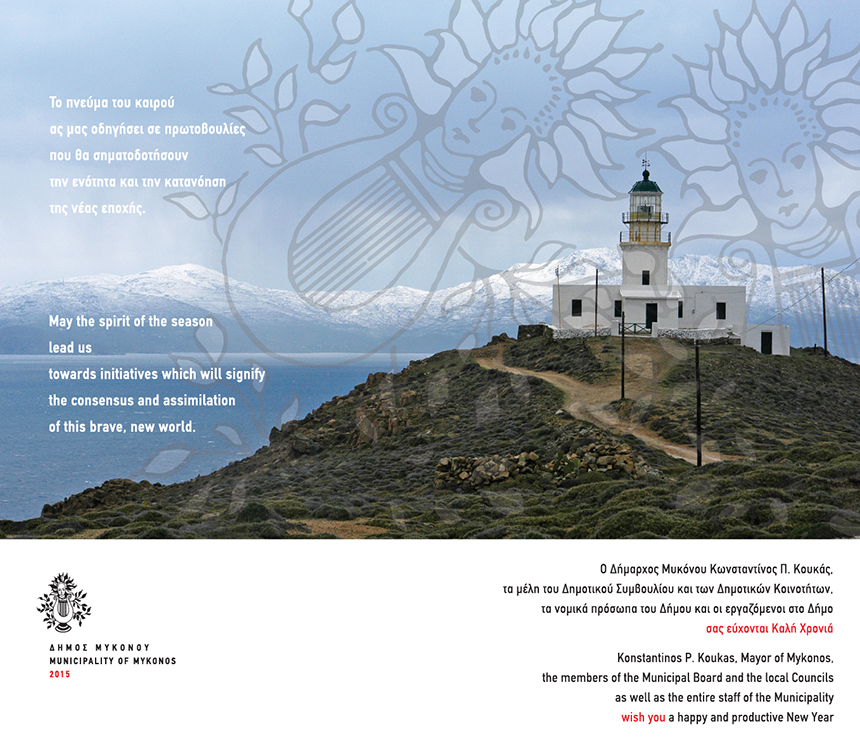

A BRIEF HISTORY OF DELOS
Delos must always raise some astonishment when one compares its size to its history. Although a small, rocky island, no more than 5 Km long and 1.300 m. wide, for ancient Greeks it was the most sacred place, because Apollo and Artemis, two of the most important deities of the Greek pantheon, were born there.
The earlier inhabitants of Delos build (ca 2.500 BC) their simple dwellings on the top of the low hill Kynthos, where from they could easily inspect the sea around the island for coming enemies. The Mycenaeans, who came later on (end of 15th C BC), felt confident enough to settle in the small valley by the sea.
The Apollonian sanctuary, established at least since the 9th C BC, reached the peak of its glory during the archaic and classical period, when Hellenes from all over the Greek world gathered there to worship Apollo the god of light, harmony and balance, and Artemis, the moon-goddess, his twin sister.
By the end of the 5th C BC there were already some houses and farms around the sanctuary. The town seen today developed rapidly after 167 BC, when, as a result of the declaration of Delos as a free port, all the commercial activity of the eastern Mediterranean was congregated on the isle. Rich merchants, bankers, and ship-owners from all over the world settled there, attracting many builders, artists and craftsmen who build for them luxurious houses, richly decorated with frescoes and mosaic floors. The small island became soon the maximum emporium totius orbis terrarum - the greatest commercial centre of the whole world.
The prosperity of the island and the friendly relations with the Romans were the main cause of its destruction. Delos was attacked and looted twice: in 88 BC by Mithridates, the King of Pontus, an enemy of the Romans, and later, in 69 BC, by the pirates of Athenodorus, an ally of Mithridates. Since then the island was gradually abandoned and fell rapidly into decline.
The excavations, that started in 1872 and are still in progress, have unearthed the Sanctuary and a good part of the cosmopolitan Hellenistic town.
P. J. CHATZIDAKIS